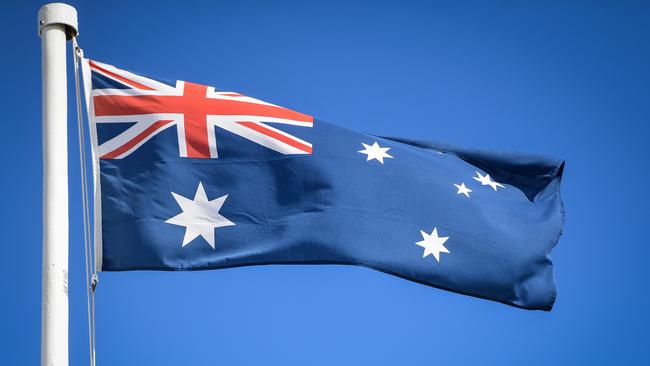Patrick Carlyon: Australia Day lost to division and outrage
It seems when it comes to Australia Day, there are only two opinions to have. But the issue, much like our national history, is far more nuanced.

Patrick Carlyon
Don't miss out on the headlines from Patrick Carlyon. Followed categories will be added to My News.
Cricket Australia has dropped the “Australia Day” label from its January 26 schedule of matches.
The language of the decision was telling.
The sport’s governing body explained that some people “aren’t comfortable with the day”.
The decision reflected the need for “a safe enough environment”. Australia Day was “a day of mourning” for Indigenous people.
“As a stretch reconciliation plan organisation, we know we have a high level of accountability to be leaders in this space,” a spokesman said.
Who thought cricket was competing players and a bit of sledging? The sport, it seems, is instead mandated to set the bar in national heritage.
The effect is clear. Australia Day has been erased by yet another official body. With each year, the date appears to be fading further and further.
Australia Day hand-wringing has long been a perennial event, as if we must gaze into the mirror whenever questions of national identity arise, and ask ourselves where we failed.
Yet the rhetoric has hardened this year. When did Australia Day become “unsafe”? The number of Invasion Day ceremonies keep rising as the number of Australia Day ceremonies fall.
To stand up for the national day can now be likened to a dare or provocation. It seems you cannot be both proud of Australia Day and sympathetic to the historical plight of Indigenous dispossession. The notions, we’re told, must be mutually exclusive.
Australia Day used to be a harmless celebration, a bit lame on the whole, big on citizenship ceremonies and flags, light on soul-searching.
It was about “fair dinkum” and barbecues, sometimes tinged with jingoistic displays, but officially enveloped in goodwill and harmony.
That was for most of us, anyway.
Indigenous voices describe other meanings, though one of their representatives, Jacinta Price, has said she was unaware of any pain associated with Australia Day.
True, the date itself has always bobbed on flimsy moorings. Many Australians understandably misunderstand its precise significance.
The settlement of Sydney (the First Fleet was greeted with “warra warra” (go away) after arriving at Botany Bay six days earlier) doesn’t mean a lot to the rest of the nation. Australia Day has always suffered for being Sydney Day.
Yet it has also doubled as a moment to consider who we are, who we were, who we ought to be and why we haven’t done better.
This abstract symbolism has been its strength and weakness. Australia Day can mean so many different things that it doesn’t mean much at all.
Conceptual shortcomings aside, the national day is now roundly attacked by voices who bathe the date in shame and self-loathing. Their rise has been swift.
Back in 2014, when supermarkets retailed “Australia EST 1788” T-shirts, they folded when interest groups flared at the perceived connotation. Retailers and organisations learned their lesson. What was once a throwaway label was in fact inflammatory and bad for business.
Similarly, Cricket Australia’s decision is just a signal fire in a bigger campaign. In seeking to mitigate offence, Cricket Australia solved the perceived problem of Australia Day by eliminating it.
If the decision reeks of expedience, it’s also a sign of the times. The prevailing discourse dictates that you have a position. You are either for or against the national day. It unfairly follows that being for Australia Day undercuts any understanding of Indigenous hurt.
Call it death by a thousand tweets. The decline of Australia Day has been accelerated by cancel culture. Last year, a brewer was called out for its “Colonial” label, as if any nod to our origins must be assigned the accompanying ills of the era.
An MP wants a minute’s silence on Tuesday. Another MP wants the Aboriginal flag flown at half-mast. They probably won’t succeed, not literally, but these kinds of calls propel debate in what appears to be a winning strategy.
Australians are generally a tolerant bunch. We like to fit in, as shown by our compliance to drastic deprivations during last year’s lockdowns.
We don’t seek to offend. We tend to listen when people express hurt. Ratbaggery and dissent are foreign to fairness and inclusion.
This reluctance to offend helps explain how Australia Day seems to have been bludgeoned beyond repair. The masses, as every survey shows, warm to its casual rhythms. But they will not enlist in the rhetorical battlelines in Australia Day’s defence.
Those who have, in extreme terms, do not command much of a constituency. Most Australians, after all, nod to the flag but choose not to wear it.
For them to question the Australia Day shift requires a commitment to a cause which has been systematically stigmatised.
Who wants to risk labels of thoughtlessness, or even racism, for an event which inspires acknowledgment of, as opposed to passion for, our sense of who we are?
The demise of Australia Day looks doomed to happen. Will it be a victory for “closing the gap”? Or will it be just another empty gesture when the majority yielded to the minority?
Patrick Carlyon is a Herald Sun columnist





